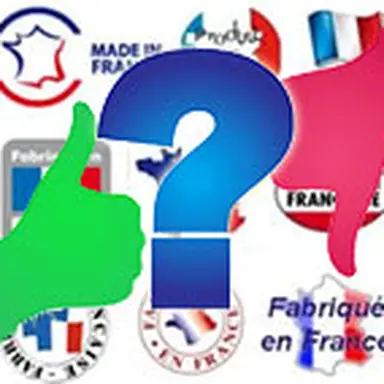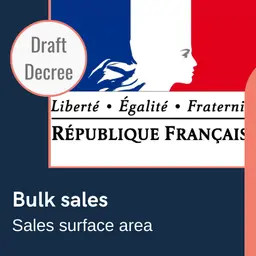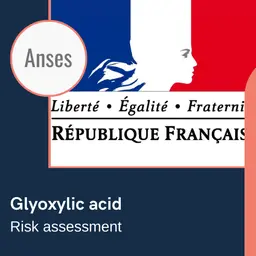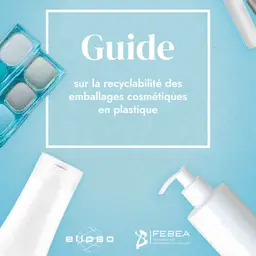
Within the context of the crisis and uncertainties regarding the future, the Made in France label is attracting renewed interest: more and more brands highlight it and want to make it a marketing tool. Yet how do consumers view it? How does it influence the buying act? This was the subject of a round table organized at the Beyond Beauty show last September 10, 2014.
The three speakers that day were Jean-Luc Ancel, Founder and General Manager of the Cosmetic Valley, Mario Moretti, Director of Lumson, the Italian packaging company, and Anne-Flore Maman-Larraufie, Consultant in Brand Management and Strategy at the SemioConsult consulting agency.
If Jean-Luc Ancel thinks the ‘Made in’ label involves a duty of excellence for companies, Mario Moretti sees a sign of passion and love of know-how to it. All three speakers agreed on one point straightaway though: the ‘Made in’ label is much more than a technical distinction for a product, as it first embodies values.
But which values is the ‘Made in France’ label associated with in the minds of consumers or BtoB buyers? Anne-Flore Maman-Larraufie took part in drafting the report Étude sur les valeurs associées au ‘Fabriqué en France’ (study on the values associated with the ‘Made in France’ label), which was handed over to the French General Directorate for Competitiveness, Industry and Services and is available on the Ministry’s website .
She shed light on the complexity of the perception of the ‘Made in’ label, which is indeed related to values, but also to preconceived ideas, whether positive or negative, against which it is very hard to fight: ‘It takes a very long time to educate consumers’, she says, ‘maybe 15 to 20 years. So it is better to understand their perceptions and expectations first, in order to give more value to French manufacturing’.
The ‘country of origin’ effect
To consumers, the origin may refer to various realities. It can be:
• the place of manufacture
• the assembly site
• the R&D or design site of the product
• the location of the registered office of the company the brand belongs to
• the origin of the ingredients or part of the product
• the brand’s country of origin…
‘What should we make of a Coca-Cola bottle labelled “Made in France” because it was manufactured in France?’,
Jean-Luc Ancel illustrated.
‘This is just nonsense! Coca-Cola is an American product above all, for everyone!’
In any event, consumers naturally tend to relate this perceived origin with what they know of it (their past experience with the country), or what is said about it (stereotypes associated with the country). And this prism approach influences their choice and purchase behaviour to various extents according to three mechanisms described by Anne-Flore Maman-Larraufie:
• Purely emotional: it is the rule of preconceived ideas and impulsiveness, conveyed by the basic ‘I like/I don’t like’
• More rational: it is the influence of the mental associations and perceptions related to the quality of the product or workforce
• Normative: it is the weight of what is written in the press and what is said in the political discourse… consumers adjust their own behaviour according to what ‘should be done’, what is appropriate regarding economic or social criteria, for example…
Values underlying the ‘Made in’ label
If ‘Made in France’ were a person, it would have the same personality traits for both the French and foreigners: it would be dynamic, feminine, sincere, and strong, as explained in the report handed over to the French Ministry.
However, beyond this composite picture, ‘Made in’ is associated with values which can be clearly positive, absolutely negative, or more ambiguous, and which differ between the French and foreigners.
Perception of the French
Generally, the French relate the ‘Made in France’ label to 14 primary values and 65 secondary values, which illustrates how fragmented their vision of it is.
Amongst the positive values:
• the product inspires confidence
• it is a quality product
• standards are complied with, which speaks in favour of its safety
• the company is established on the French territory or relocalized…
As for the negative values:
• it is a rare product that is hard to find
• it is an expensive product due to manufacturing costs in France
• companies tend to overuse this label
• the ‘Made in’ movement reminds of the delocalization waves…
As for the more ambiguous values, which can be perceived both positively and negatively:
• the ‘Made in’ claim conveys an attitude of protectionism and chauvinism
• it is just marketing exploitation of the ‘Made in France’ political issue
• it is comparable to CSR… but is it ‘Franwashing’ (equivalent of greenwashing adapted to this particular issue)?
Conclusion of the report: ‘the French do not know much about their companies’ production capacity, and there are also quite a lot of erroneous preconceived ideas, the need for a company to be legitimate to give more value to French production, and, lastly, a lack of visibility of the products made in France’.
Perception of foreigners
Foreigners’ perception of products of French origin is a little different, mainly due to the image they have of the French and of France.
Amongst the positive values:
• It is a product whose safety standards are high
• It is a product derived from know-how and tradition, which means it is rare and associated with a notion of exclusivity
• As for products said to be hedonic (luxury, fashion, gastronomy, cosmetics…), it is a way to buy a bit of the French lifestyle
• It is a vehicle for brand image, which makes a woman sexy and seductive, a man romantic, and both appear as people who like the good things in life…
As for the negative values:
• It is a product that is not competitive, and whose quality-price ratio is questionable
• Technological and utilitarian products lack reliability
• It is a product that is ill-marketed…
Conclusion: a ‘Made in France’ product guarantees aestheticism, originality, style, but not reliable technical quality. And although France does develop innovations, the French are viewed as unable to sell them!
Using the ‘Made in France’ claim efficiently
Of course, each product category has its own specificities and associated values, which means consumers do not always have the same expectations when it comes to ‘Made in France’ products.
French companies are thus facing the challenge to rely on the values consumers associate with the ‘Made in France’ label in order to define opportunities in terms of marketing strategies to be implemented: capitalizing where the ‘Made in France’ label is an asset, giving it more value or repositioning it when the image associated is less favourable…
According to the report’s authors, increasing the prestige of ‘Made in France’ products in the opinion of French consumers may involve using rational arguments based on quality and safety, playing on the notion of a product that is ‘from here at home’, and will require to separate origin and price markings everywhere (labels, communication, etc.).
The French cosmetics industry can also count on its reputation of excellence, whether in France or elsewhere.













